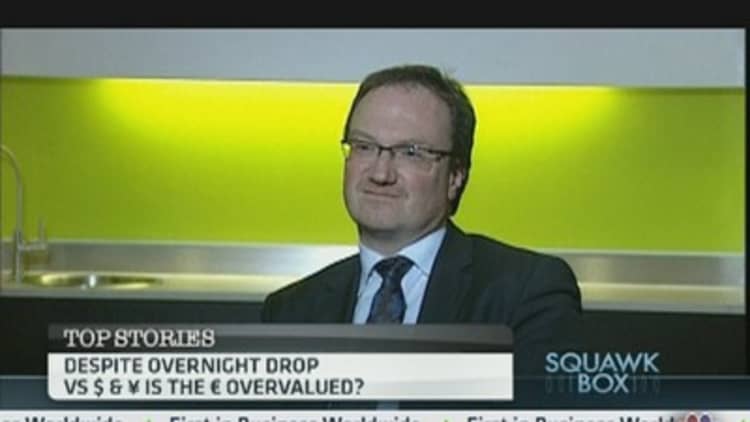The yen skyrocketed against the euro and dollar on Friday after Japan's finance minister said the currency has recently weakened too quickly, raising doubts about whether the next governor of the Bank of Japan will ease policy aggressively.
The yen, which fell to its lowest against the euro since April 2010 and its lowest against the dollar since May 2010 on Wednesday, got a boost from Finance Minister Taro Aso's comments that the yen's slide from 78 to 90 per dollar was steeper than intended.
It was also helped by a Reuters report that Japanese Prime Minister Shinzo Abe faces opposition from within his own cabinet and financial bureaucrats to appointing a new BoJ governor who will pursue aggressive easing policies.
"Watching BoJ candidates is key for dollar/yen leading into March," said Camilla Sutton, chief currency strategist at Scotiabank in Toronto.

A new governor who supports the purchases of foreign bonds would be the most negative choice for the yen, she said.
"We hold a relatively modest year-end dollar/yen forecast of 95," she said.
The euro fell as low as 123.40 yen, before paring losses to last trade down 1.2 percent on the day at 123.92 yen.
The dollar last traded at 92.78 yen, down 0.9 percent on the day, according to Reuters data. It earlier hit a low of 92.15 yen.
At current prices, the dollar has gained against the yen for 13 straight weeks.
Currencies
The euro, meanwhile, continued to be weighed by comments that European Central Bank chief Mario Draghi made on Thursday.
Draghi said the exchange rate is important for growth and price stability, which investors perceived as a sign the bank is concerned with the common currency's recent advance and potentially could act to stem its strength.
"Central bank and government officials from around the world have given FX markets the gift of volatility this year," said Win Thin, senior currency strategist at Brown Brothers Harriman in New York. "Yesterday, it was ECB President Draghi's second press conference in a row that caught markets by surprise. Today, it was Japan Finance Minister Aso's turn, as he apparently told reporters that the recent pace of yen weakness has been too fast."
Earlier this month, BoJ governor Masaaki Shirakawa said he will step down on March 19, weeks ahead of schedule, allowing Abe to appoint a chief who is more amenable to making drastic policy changes to get Japan out of deflation.
Expectations that the BoJ will aggressively ease monetary policy have driven the yen lower in recent months.
Some strategists said gains were likely to be temporary after Japanese balance-of-payments data added to worries about the economy. Japan posted a current account deficit for the second month running in December.
Meanwhile, sudden swings in currency rates are refiring measures of future global markets volatility, pushing these risk gauges back toward what some will see as more realistic and even healthier levels.
Reading the ECB
The last traded at $1.3362, down 0.3 percent on the day, with the session trough of $1.3352, the lowest since Jan. 25.
Draghi also said economic activity in the euro area should recover gradually in 2013, but added there are more negative risks than positive, and said the exchange rate was important for growth and stability.
Investors interpreted the remarks as setting the scene for a possible future interest rate cut by the ECB, in the event that the euro zone economy slows further.
At the moment the ECB is still withdrawing some of its unconventional policy easing at a time when both the Federal Reserve and the BoJ are expanding their balance sheets.
The euro, at current prices, is down about 2.03 percent against the dollar this week, the worst week since July 8, according to Reuters data.


